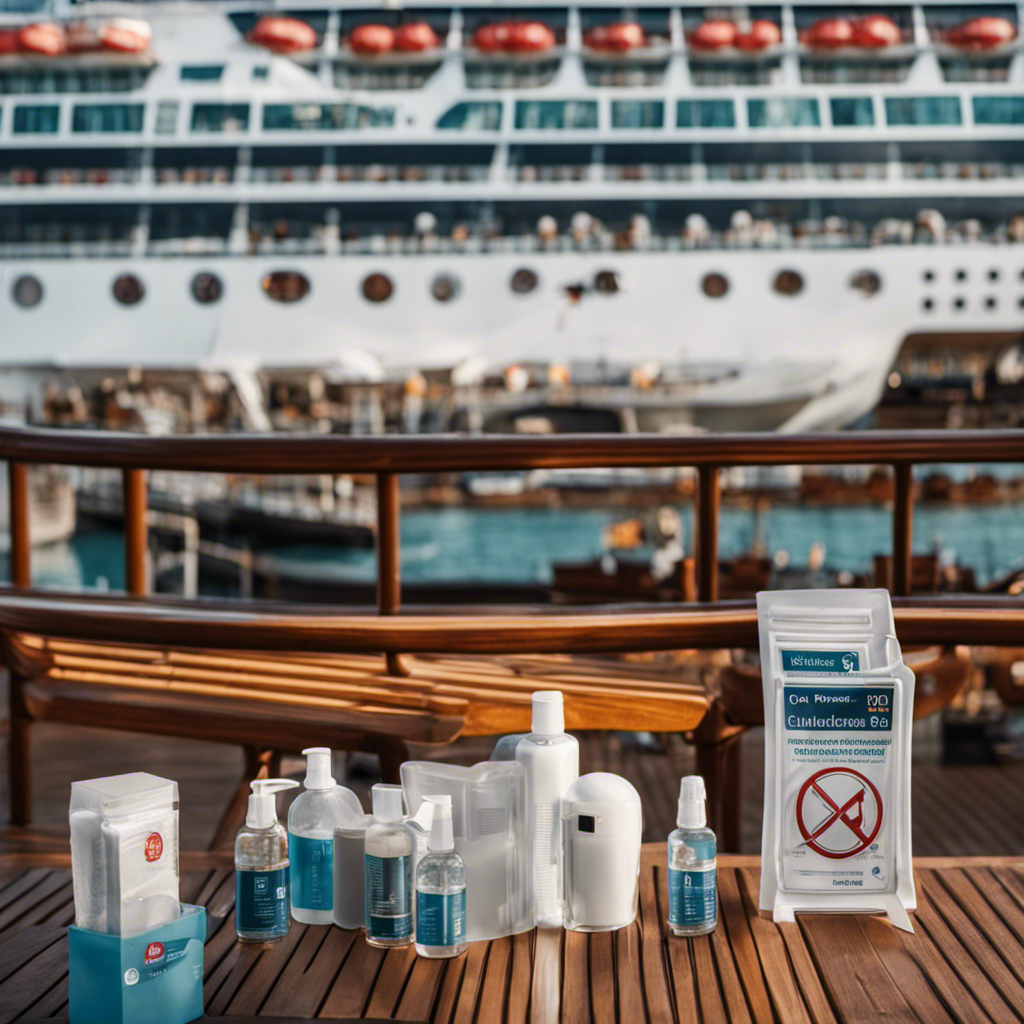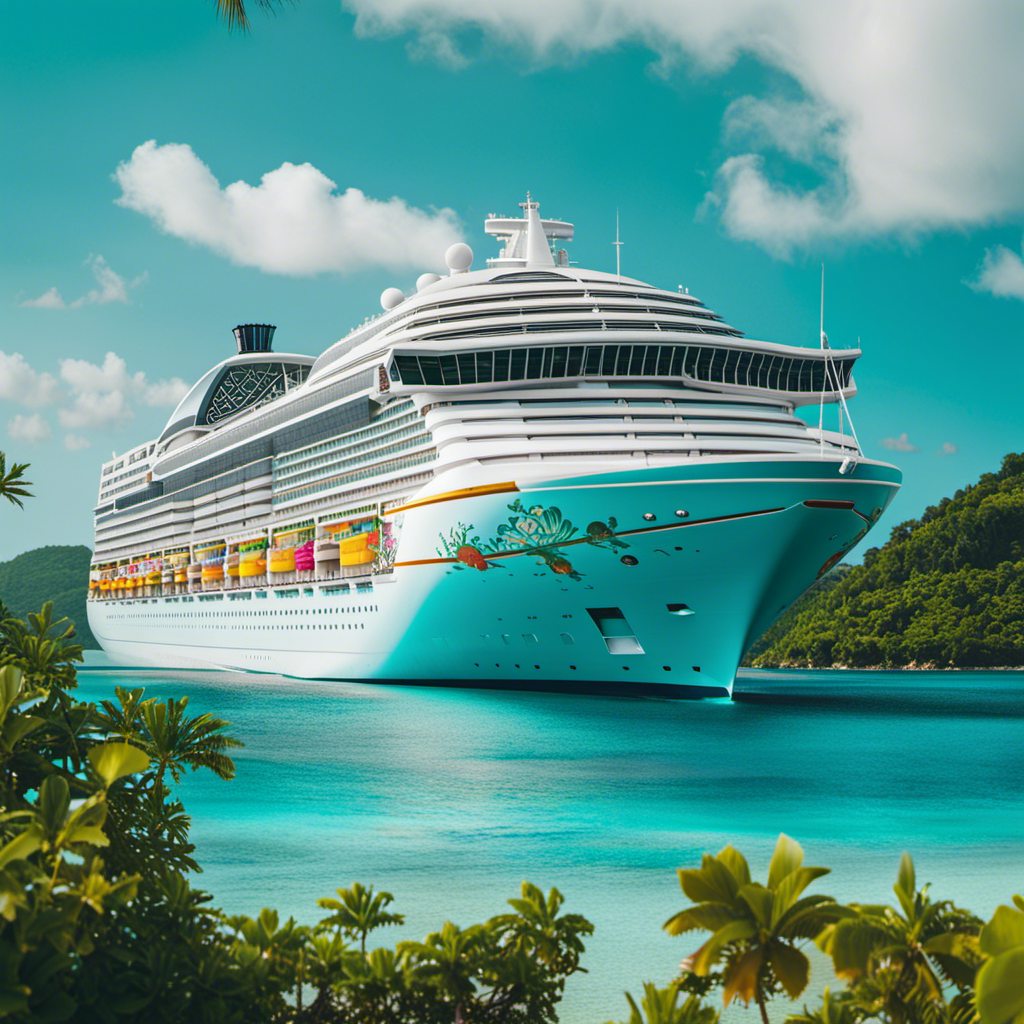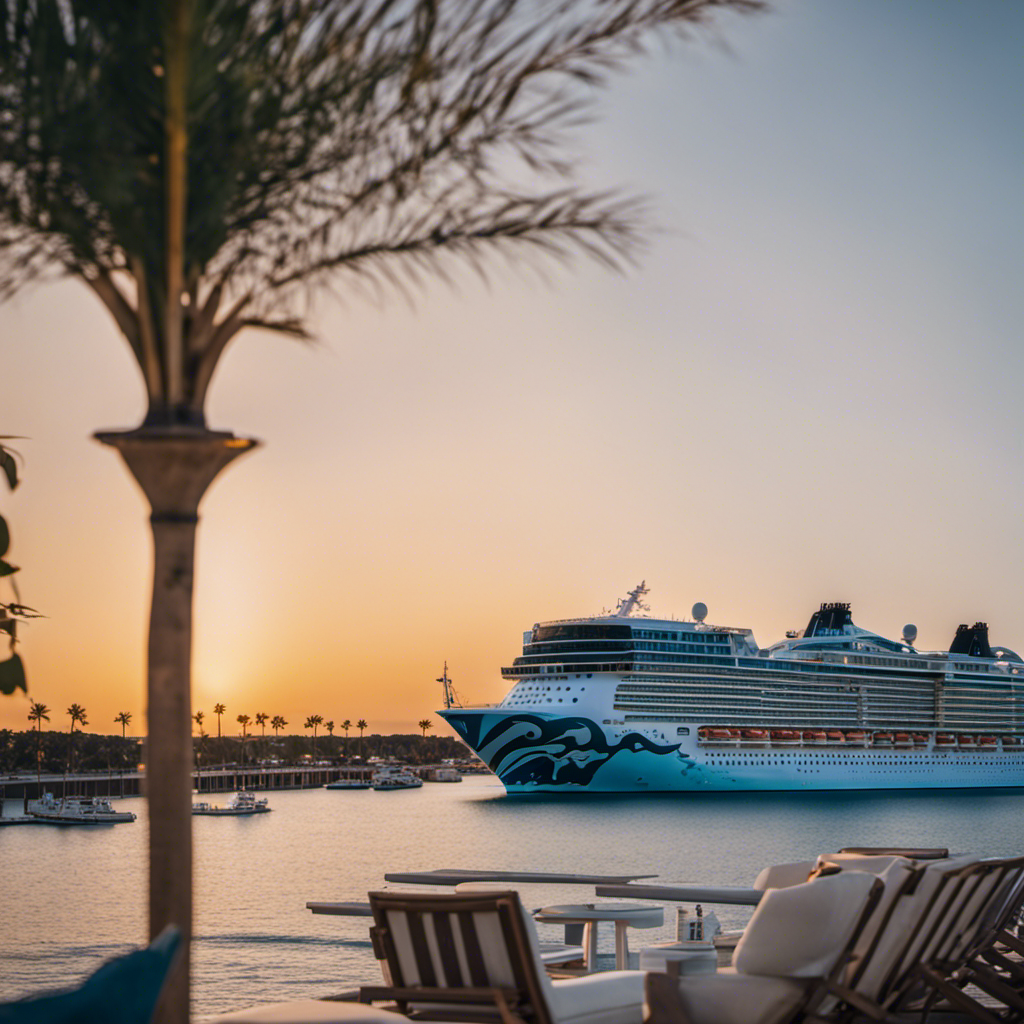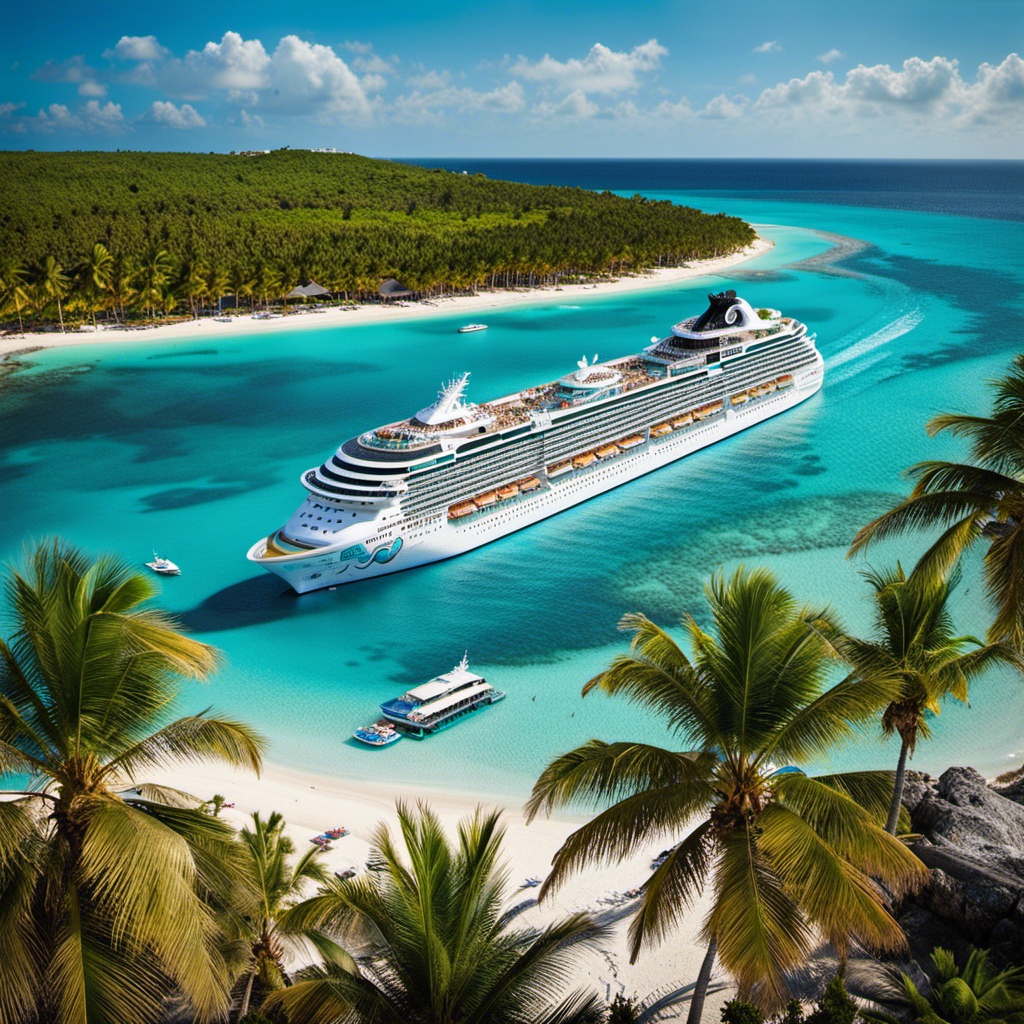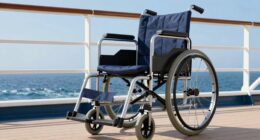As a cruising enthusiast, I found it quite disheartening to learn that the Centers for Disease Control and Prevention (CDC) has opted to extend the Conditional Sailing Order (CSO) restrictions for cruise ships. This extension, which goes beyond November 1, 2021, indicates that significant changes to the onboard cruise experience may not be forthcoming anytime soon.
Despite the majority of passengers and crew being vaccinated, the CDC has reported 1,359 confirmed cases of COVID-19 on cruise ships since June 26. However, compared to other forms of travel and entertainment, these cases remain relatively low.
It seems that the virus will continue to dictate how cruise lines respond to changing circumstances.
Key Takeaways
- The CDC has extended the Conditional Sailing Order (CSO) rules for cruise ships beyond November 1, 2021, until specific conditions are met.
- The CSO is currently voluntary for ships sailing from Florida, but cruise lines have chosen to follow the order.
- The CDC plans to implement a voluntary program in January to assist cruise ships in managing COVID-19, but only four out of eleven cruise lines have expressed interest in participating.
- Despite the majority of passengers and crew being vaccinated, there have been 1,359 confirmed cases of COVID-19 on cruise ships since June 26, with 49 hospitalizations reported to the CDC.
Extension of Conditional Sailing Order (CSO)
I’m glad to hear that the CSO rules have been extended beyond November 1, 2021, and will remain in place until specific conditions are met. This extension ensures cruise ship safety and the continuation of COVID-19 protocols.
Currently, the CSO is voluntary for ships sailing from Florida, but cruise lines have chosen to follow the order. The CDC plans to implement a voluntary program in January to further assist cruise ships in managing COVID-19. However, only four out of eleven cruise lines have expressed interest in participating, and details of the program are not fully disclosed.
Despite the majority of passengers and crew being vaccinated, the CDC has reported 1,359 confirmed cases of COVID-19 on cruise ships since June 26. These cases occurred during the peak of the Delta variant wave, but the impact on cruise ships is relatively low compared to other forms of travel and entertainment.
Cruise lines have implemented strict protocols and vaccine requirements to protect the health of passengers and crew. The extension of the CSO indicates confidence in these measures, and while little change is expected during the extended order period, the cruise experience may significantly change if the order expires and cases continue to decline on land. Cruise lines may adjust health protocols based on conditions, with the virus dictating their response to changing circumstances.
Transition to Voluntary Program
Implementing a voluntary program in January allows cruise ships to better manage COVID-19 and prioritize the health of passengers and crew.
- Cruise lines have chosen to follow the voluntary program, which was proposed by the CDC.
- The program aims to assist cruise ships in managing COVID-19 by implementing stricter protocols and health measures.
- Only four out of eleven cruise lines have expressed interest in participating in the program, indicating varying levels of commitment to health and safety.
- Details of the voluntary program are not fully disclosed, raising questions about its effectiveness and potential impact on the cruise experience.
By transitioning to a voluntary program, cruise ships have the opportunity to enhance their COVID-19 management strategies. However, the limited number of cruise lines participating in the program raises concerns about its overall effectiveness.
It remains to be seen how this voluntary approach will impact the health and safety of passengers and crew on board cruise ships.
COVID-19 Cases on Cruise Ships
Despite the majority of passengers and crew being vaccinated, there have been 1,359 confirmed cases of COVID-19 on cruise ships since June 26. The impact of these cases on the cruise industry is significant, as it raises concerns about the effectiveness of vaccination and onboard safety measures. The following table provides some insights into the COVID-19 cases on cruise ships:
| Cases Reported | Vaccinated Passengers | Vaccinated Crew | Hospitalizations |
|---|---|---|---|
| 1,359 | Not specified | Not specified | 49 |
These numbers highlight the need for continued vigilance and adherence to safety protocols. It is important to note that these cases occurred during the peak of the Delta variant wave, which may have contributed to the spread of the virus. However, despite these cases, the impact on the cruise industry remains relatively low compared to other forms of travel and entertainment. Cruise lines have implemented strict protocols and vaccine requirements to protect the health of passengers and crew. As the virus continues to evolve, cruise lines will need to adapt and adjust their health protocols accordingly to ensure the safety of all onboard.
Relatively Low Impact Compared to Other Forms of Travel and Entertainment
The impact of COVID-19 cases on cruise ships remains relatively low compared to other forms of travel and entertainment. This is due to the strict cruise ship safety measures and the impact of vaccine requirements.
Cruise lines have implemented protocols to protect the health of passengers and crew, including mandatory vaccination for the majority of passengers and crew members. Despite these measures, there have been reported cases of COVID-19 on cruise ships. However, the number of cases is relatively low in percentage compared to the overall number of passengers and crew on board.
It is important to note that cases occurred during the peak of the Delta variant wave, which affected various sectors. Cruise lines continue to monitor the situation and adjust their health protocols based on the conditions.
Potential Changes in Onboard Cruise Experience
I believe that the transition to a voluntary program in January signals confidence in the cruise lines’ ability to manage and protect against COVID-19. This shift indicates that the CDC trusts the cruise industry’s health protection measures and acknowledges their commitment to passenger safety.
As we consider the potential impact of this transition on the passenger experience, two key points come to mind:
-
Enhanced Health Protocols:
- Cruise lines may adjust their health protocols based on the current conditions and guidance from health authorities.
- Passengers can expect strict measures such as testing, face coverings, enhanced sanitation, and social distancing to continue onboard.
-
Changing Circumstances:
- The virus will continue to dictate how cruise lines respond to evolving circumstances.
- If cases continue to decline on land and the conditional sailing order expires, we may see significant changes to the onboard cruise experience.
Overall, the transition to a voluntary program in January demonstrates the industry’s commitment to ensuring a safe and enjoyable experience for passengers while managing the ongoing challenges posed by COVID-19.
Cdc’s Confidence in Cruise Lines’ Health Protection Measures
As a passenger, I am reassured by the CDC’s confidence in the cruise lines’ ability to protect against COVID-19. The CDC’s move towards a voluntary program indicates their trust in the health protection measures implemented by cruise lines. Despite the relatively low number of COVID-19 cases on cruise ships, the cruise lines have taken strict precautions and enforced vaccine requirements to ensure the safety of passengers and crew. It is important to note that cases occurred during the peak of the Delta variant wave, and the virus itself plays a significant role in the spread of cases. Cruise lines have shown their willingness to adapt and adjust their health protocols based on changing circumstances. The ongoing collaboration between the CDC and cruise lines ensures a continuous effort to safeguard the health of everyone on board.
| CDC’s Confidence in Cruise Lines’ Health Protocols | Cruise Lines’ Response to Changing Circumstances |
|---|---|
| CDC’s voluntary program demonstrates trust | Cruise lines’ adaptability and flexibility |
| Low number of cases despite Delta variant wave | Adjusting health protocols as conditions change |
| Strict precautions and vaccine requirements | Collaborating with CDC to protect passengers |
Little Change Expected During the Extended Order Period
During the extended order period, little change is expected in the cruise industry. The CDC’s confidence in cruise lines’ protocols is evident in their decision to extend the Conditional Sailing Order (CSO) and implement a voluntary program in January. This indicates that the CDC believes cruise lines have the necessary measures in place to manage COVID-19.
However, the impact of COVID-19 on the cruise industry’s profitability has been significant. With the reported cases of COVID-19 on cruise ships despite the majority of passengers and crew being vaccinated, the industry has faced challenges in maintaining customer confidence. As a result, cruise lines may need to adjust their health protocols based on the conditions and the virus’s impact.
The profitability of the cruise industry will depend on how effectively these measures are implemented and the public’s perception of safety.
Possible Significant Changes if Cases Continue to Decline on Land
If cases continue to decline on land, significant changes could occur in the cruise industry.
-
Reduction in health protocols: With declining cases, cruise lines may choose to relax certain health protocols on board. This could include loosening mask mandates, reducing social distancing requirements, and easing restrictions on dining and entertainment options.
-
Increased capacity: As cases decrease, cruise lines may gradually increase their ship capacity to accommodate more passengers. This could result in a more crowded onboard experience, with more people enjoying the amenities and activities offered by the cruise ships.
-
Resumption of normal itineraries: Declining cases on land could also lead to the resumption of normal cruise itineraries. Cruise lines may be able to visit a wider range of destinations without the risk of outbreaks or restrictions imposed by local authorities.
-
Higher demand for cruises: If cases continue to decline, it’s likely that more people will feel comfortable booking and taking cruises. This could result in a surge in demand for cruise vacations, leading to increased ticket prices and limited availability.
Overall, declining cases on land have the potential to bring about significant changes in the cruise industry. This includes a more relaxed onboard experience, increased capacity, expanded itineraries, and a higher demand for cruises.
Virus Dictating Cruise Lines’ Response to Changing Circumstances
I believe the virus will play a significant role in how cruise lines adapt to changing circumstances.
The impact of the virus on the cruise industry has been substantial, leading to the implementation of various response strategies. The recent extension of the Conditional Sailing Order (CSO) by the CDC indicates the continued importance of health protection measures. Cruise lines have chosen to follow the order voluntarily, demonstrating their commitment to managing the risk of COVID-19.
Additionally, the CDC’s plans to introduce a voluntary program in January further highlight the industry’s focus on addressing the virus. The relatively low number of COVID-19 cases on cruise ships, despite the majority of passengers and crew being vaccinated, suggests that cruise lines’ strict protocols and vaccine requirements have been effective in protecting the health of individuals onboard.
As the virus continues to evolve, cruise lines will need to adapt their response strategies to ensure the safety and well-being of their passengers and crew. The virus will ultimately dictate how the cruise industry navigates these changing circumstances.
Frequently Asked Questions
How Does the Extension of the Conditional Sailing Order (Cso) Affect Cruise Ships Sailing From Florida?
The extension of the Conditional Sailing Order (CSO) affects cruise ships sailing from Florida by making the CSO rules voluntary. The impact on the Florida cruise industry will depend on how cruise lines choose to follow the guidelines.
Which Cruise Lines Have Expressed Interest in Participating in the Cdc’s Voluntary Program?
Four out of eleven cruise lines have expressed interest in participating in the CDC’s voluntary program. The program aims to assist cruise ships in managing COVID-19. However, specific details of their participation have not been disclosed.
Can You Provide Specific Details About the 1,359 Confirmed Cases of COVID-19 on Cruise Ships Since June 26?
Sure, I can provide specific details about the 1,359 confirmed cases of COVID-19 on cruise ships since June 26. However, it’s important to note that these cases occurred despite the majority of passengers and crew being vaccinated.
How Do the COVID-19 Cases on Cruise Ships Compare to Cases in Other Forms of Travel and Entertainment?
The impact of COVID-19 cases on cruise ships is relatively low compared to other forms of travel and entertainment. Strict protocols and vaccine requirements are in place, and cases occurred during the Delta variant wave.
What Factors Will Determine Potential Changes in the Onboard Cruise Experience?
Factors that determine potential changes in the onboard cruise experience include the effectiveness of health protocols, virus transmission rates, and passenger satisfaction. These factors impact the amenities offered and overall satisfaction of passengers.

